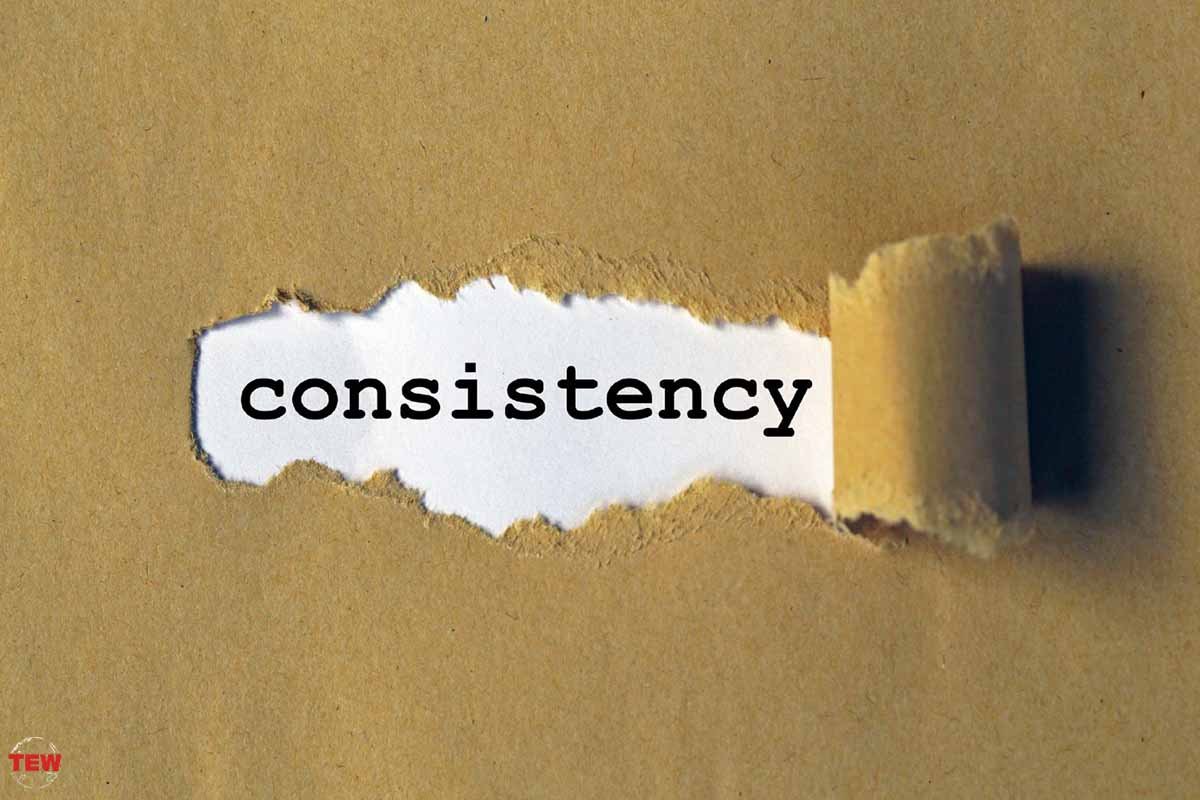In the digital age, where most readers and book enthusiasts are only a click away, establishing a robust author online presence is no longer just an option for self-published authors—it’s necessary. For independent authors, the internet is a powerful tool that levels the playing field, offering opportunities to reach audiences far and wide without the backing of traditional publishing houses. It’s a realm where your book, fresh off the book printing press, can be discovered, your voice heard, and your author brand built from the ground up. This digital platform complements the tangible aspect of book printing, creating a comprehensive approach to publishing and marketing your work.
Without traditional marketing and distribution channels, the digital world offers an array of platforms to connect with potential readers, industry professionals, and fellow authors. A well-crafted author online presence helps build credibility, increase visibility, and establish a loyal reader base.
As a beginner, navigating the various online media platforms can seem daunting, but each offers unique benefits and opportunities. Here’s a glimpse into some of these platforms:
Author Websites: Think of your author website as your online home base. It’s a central hub where readers can learn about you, your books, and how to contact you. A good author website includes a biography, a catalogue of your books, a blog, and contact information.
Blogs: Blogging allows you to share more in-depth content. It could be about your writing process, the inspiration behind your books, or even tips for fellow aspiring authors. Blogs are a fantastic way to engage readers and keep them updated on your work.
Social Media Platforms: Platforms like Facebook, Twitter, Instagram, and LinkedIn offer different ways to connect with diverse audiences. Each platform has its strengths—some are better for sharing visual content, others for quick updates or networking.
Author Websites: The Cornerstone of Your Online Identity
In the journey of self-publishing, having a professional author website is like owning a piece of digital real estate entirely yours. It’s the cornerstone of author online presence, where you can showcase your work and connect with your audience on your terms.
Importance of a Professional Author Website
- Centralized Information Hub: Your author website is the go-to place for everything about you and your work. Unlike social media or other platforms, you have complete control over the content and presentation, making it a reliable source of information for your readers.
- Professionalism and Credibility: A well-designed website lends professionalism to your author persona. It shows that you are serious about your writing career and provides credibility that can appeal to readers and industry professionals.
- Direct Sales and Marketing Platform: Your website can serve as a platform for selling your books directly, offering you complete control over the sales process and, often, a better profit margin.

Key Elements of an Effective Author Website
- Biography: Your biography should be more than just a dry list of achievements. It’s an opportunity to tell your story and connect with your audience personally. Share your journey, your inspirations, and a glimpse into your life as a writer.
- Book Gallery: This section showcases your work. Include high-quality images of your book covers, brief descriptions, and links to purchase them. If you have multiple books, organise them in a way that’s easy to navigate.
- Contact Information: Make reaching you easy for readers, media, or potential collaborators. Include a contact form, email address, or social media links. Remember, the easier it is for people to contact you, the more likely they are to do so.
- Blog Section: A blog can keep your site dynamic and fresh. Share updates about your writing, insights into the writing process, or articles related to the themes of your books. It’s also an excellent tool for improving your site’s search engine optimisation (SEO), helping new readers discover you.
Positives of Having an Author Website
- Full Control Over Content: You decide what to post, how to present it, and when to update it. This control allows you to build and maintain your brand image precisely as you envision it.
- Direct Engagement with Readers: Your website can become a community hub. You can engage in deeper, more meaningful conversations with your audience through blog comments, newsletters, and direct emails.
Blogging: Connecting with Readers through Content
Blogging, in the realm of self-publishing, is much more than just a medium for expressing thoughts and ideas. It’s a strategic tool that helps establish your expertise and build author online presence, connects you intimately with your readers, and enhances your visibility in the digital space.
Establishing Expertise and Connecting with Readers
- Establishing Expertise: By sharing insightful content about your writing journey, the publishing process, or your book’s themes, you position yourself as a knowledgeable figure. This expertise helps build trust and credibility with your audience.
- Creating a Personal Connection: Blogs allow you to speak directly to your readers. By sharing personal stories, challenges, and successes, you can form a more personal and emotional connection, making your readers feel part of your journey.
- Building a Community: Regular blogging can help cultivate a community around your work. It invites readers to engage with your content through comments, shares, and discussions, fostering a sense of belonging and loyalty.
Ideas for Engaging Blog Content
- Writing Processes: Share insights into your writing, including your routines, challenges, and tips. This can be especially appealing to aspiring writers and fans interested in the behind-the-scenes of book creation and also boost author online presence.
- Book Previews: Offer sneak peeks of upcoming works, such as excerpts, character introductions, or plot teasers. This builds anticipation and keeps your readers engaged between publications.
- Personal Anecdotes: Share stories from your life that have influenced your writing. These could be experiences that inspired a book, taught you a valuable lesson, or even amusing anecdotes that give readers a glimpse of the person behind the author.
Positives of Blogging for author online presence
- Builds a Loyal Readership: You can attract and retain a dedicated following by providing consistent and engaging content. Your blog becomes a reason for readers to keep coming back.
- Enhances SEO: Regularly updated blogs with quality content are favoured by search engines. This means better visibility for your site, helping new readers discover you and your books.
Social Media Strategies for Authors
Social media stands out as a dynamic and versatile tool for self-published authors. It offers a platform to promote your work and build author online presence and nurture a community of readers and fellow writers. Each social media platform has unique features and audiences, making it crucial to tailor your approach accordingly.
Overview of Major Social Media Platforms
- Facebook: With its vast user base, Facebook is excellent for reaching a broad audience. It’s ideal for sharing longer posts and updates about your books and creating author pages or groups to engage your readers directly.
- Twitter: Known for its brevity and immediacy, Twitter is perfect for quick updates, networking with other authors and industry professionals, and participating in writing-related discussions.
- Instagram: A visually oriented platform, Instagram is great for sharing images and short videos related to your books, writing process, or author lifestyle. It’s also effective for storytelling through visuals and captions.
- LinkedIn: Often overlooked by authors, LinkedIn can be valuable for networking with publishing industry professionals, sharing more professional content, and establishing your author brand in a business context.
- TikTok: This platform has become a hotspot for book lovers and authors alike. Short, engaging videos about your writing process, book teasers, or fun, literary-themed content can help you tap into TikTok’s younger, bookish audience.
Tailoring Content for Each Platform
- Facebook: Use it for in-depth posts, events, and creating a community around your books. Share milestones and book launch details, and engage with readers through comments and live sessions.
- Twitter: Perfect for engaging in literary conversations, sharing quick updates, and participating in trending hashtags. Keep it concise and engaging.
- Instagram: Focus on high-quality visuals and engaging stories. Share book covers and snippets of your writing space, and use Instagram Stories for real-time engagement.
- LinkedIn: Share articles, thought leadership pieces, and professional achievements. Tailor your content to showcase your journey as a writer from a professional standpoint.
- TikTok: Embrace creativity and fun. Share short, engaging videos that might include readings, behind-the-scenes glimpses, or humorous takes on the writing life.
Engaging with the Audience

- Responding to Comments: Regularly responding to comments across platforms helps build a relationship with your audience. It shows author online presence that you value their engagement and are approachable as an author.
- Joining Conversations: Participate in relevant discussions, Twitter chats, or Instagram Live sessions. This increases your visibility and helps you understand what your audience is interested in.
- Hashtag Usage: Use hashtags effectively to reach a wider audience. Research trending hashtags within the writing and reading community.
Positives of Social Media
- Wide Reach: Social media platforms have a vast global reach, allowing you to connect with readers worldwide.
- Immediate Feedback: You can receive instant feedback from your audience, providing valuable insights into their preferences and perceptions.
- Community Building: These platforms enable you to create and nurture dedicated readers and fellow authors’ communities.
Building and Maintaining an Online Community
For self-published authors, building an online community is about creating a space where readers can connect, share, and engage with your content and each other. A robust online community can be a powerful asset, offering support, feedback, and a loyal fan base.
Strategies for Growing and Engaging an Online Community
- Creating Valuable and Relevant Content: Share content that resonates with your audience. This could include insights into your writing process, exclusive previews, or discussions about themes relevant to your books.
- Interactive Engagement: Foster interaction by asking questions, creating polls, or starting discussions. Respond to comments and messages to make members feel heard and valued.
- Hosting Online Events: Organize live Q&A sessions, virtual book readings, or writing workshops to engage with your community in real-time.
- Regular Updates: Keep your community informed about your writing journey and book progress. Regular updates help in maintaining interest and engagement.
- Leverage Multiple Platforms: Utilize various platforms (like social media, forums, or your blog) to reach different audience segments and bring them together.
Importance of Consistency, Authenticity, and Providing Value
- Consistency: Regular engagement and content updates keep the community active. It shows commitment and helps in building a routine for members to follow.

- Authenticity: Be genuine in your interactions. Authenticity helps in building trust and a deeper connection with your audience.
- Providing Value: Ensure your interactions and content add value to your community members’ experience. This could be educational, inspirational, or simply entertaining.
Building an effective author online presence is a multifaceted endeavour, especially crucial for self-published authors. It’s about creating a brand, a voice, and a community. Each platform, whether a blog, social media, or website, offers unique opportunities to connect with readers and grow your audience.
Exploring and experimenting with different platforms is essential to find what resonates best with your audience and suits your brand. Consistency, authenticity, and providing value should be the cornerstones of your strategy, regardless of the platforms you choose. Embrace this author online presence journey with openness, creativity, and a willingness to learn and adapt, and you’ll find a community of readers who are just as excited about your writing as you are.





